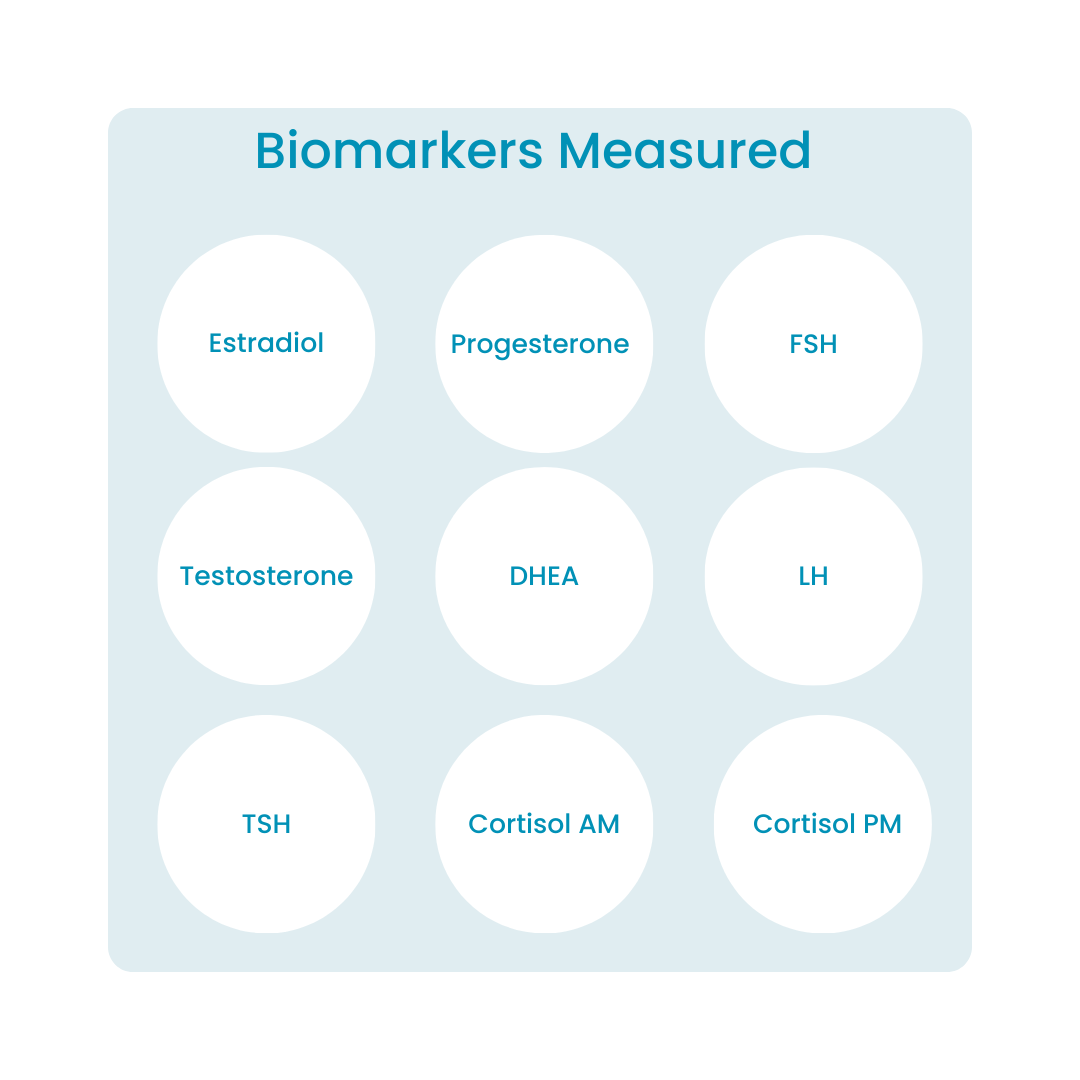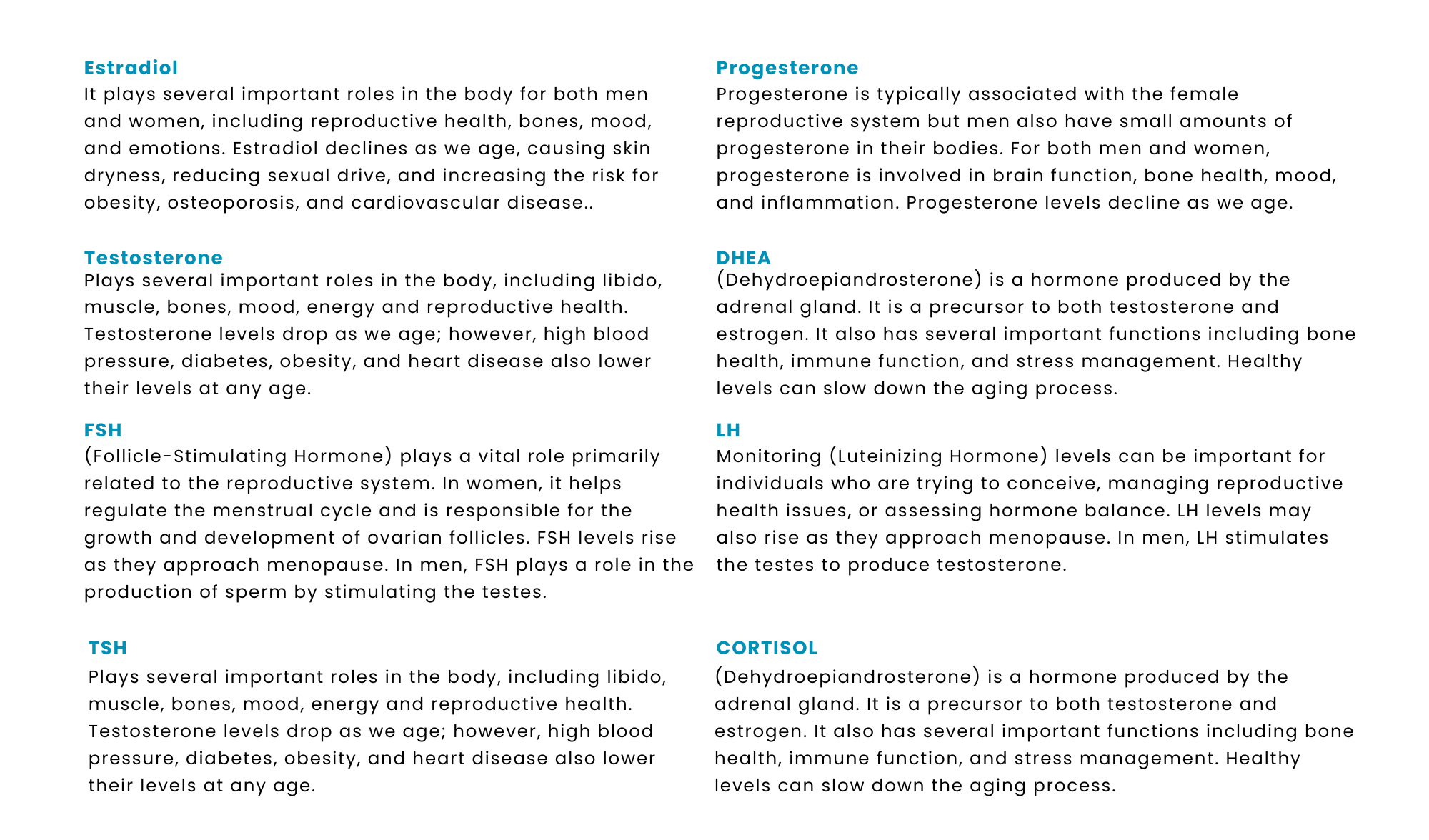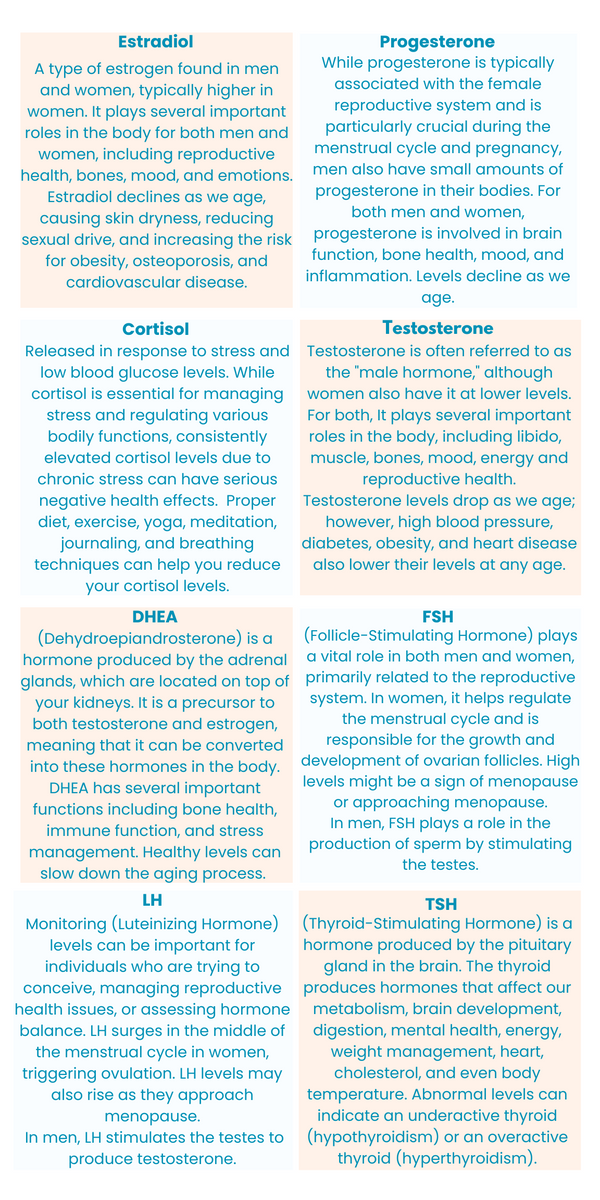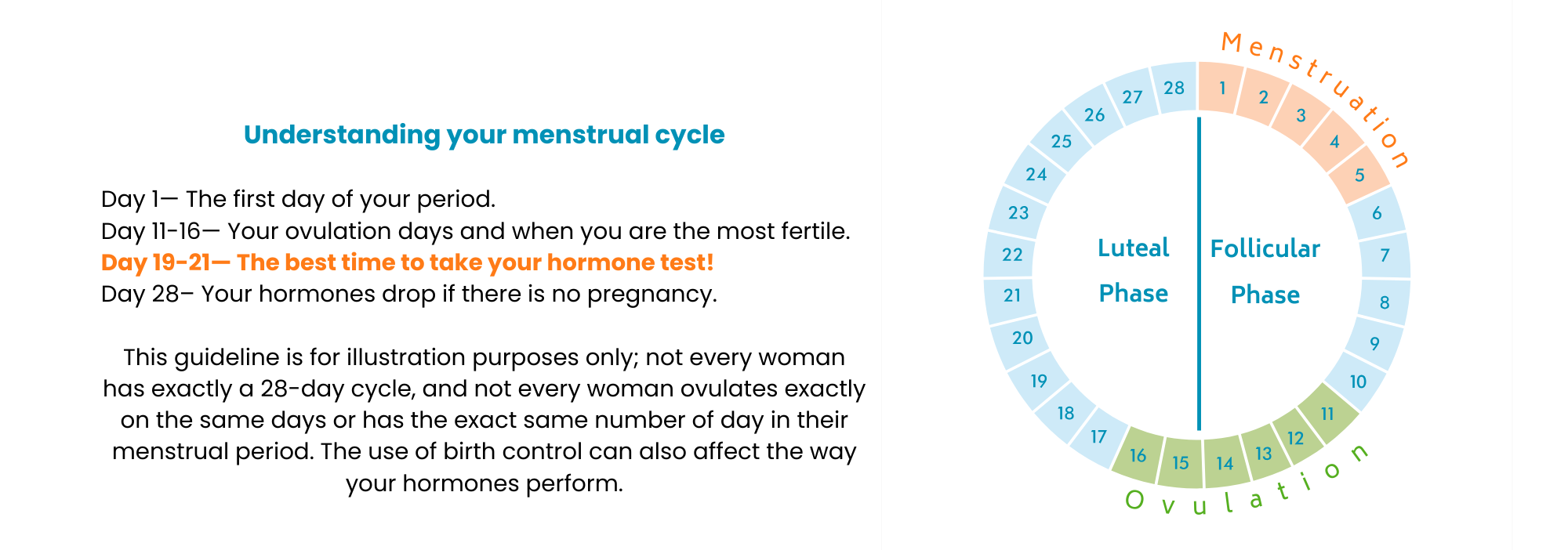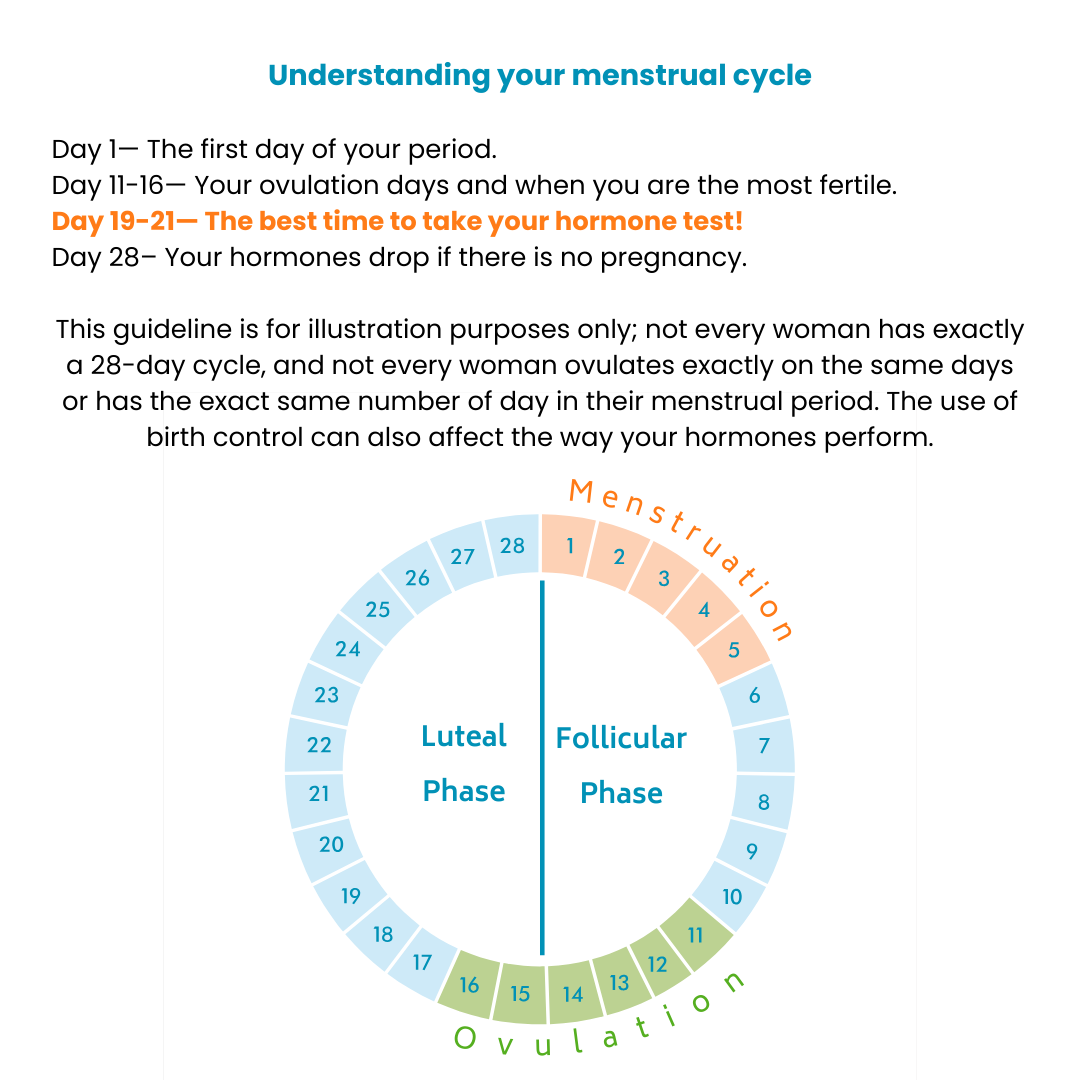Is this for me?
Hormones play an important role in every part of our life; they regulate every function of our body, from how we grow, our fertility, blood pressure, quality of sleep, blood sugar, sex drive, how our metabolism functions, and even our emotional and mental health.

Sample Collection
Easy to follow steps to make the process of collecting your sample seamless.
FAQs
Hormones are linked to every system in our bodies; monitoring their levels and ranges at every stage of our lives is important.
Results are ready around five to seven days after the sample is received in our lab.
We don't bill your insurance directly but you can always submit your receipt for reimbursement if your insurance plan allows it.






